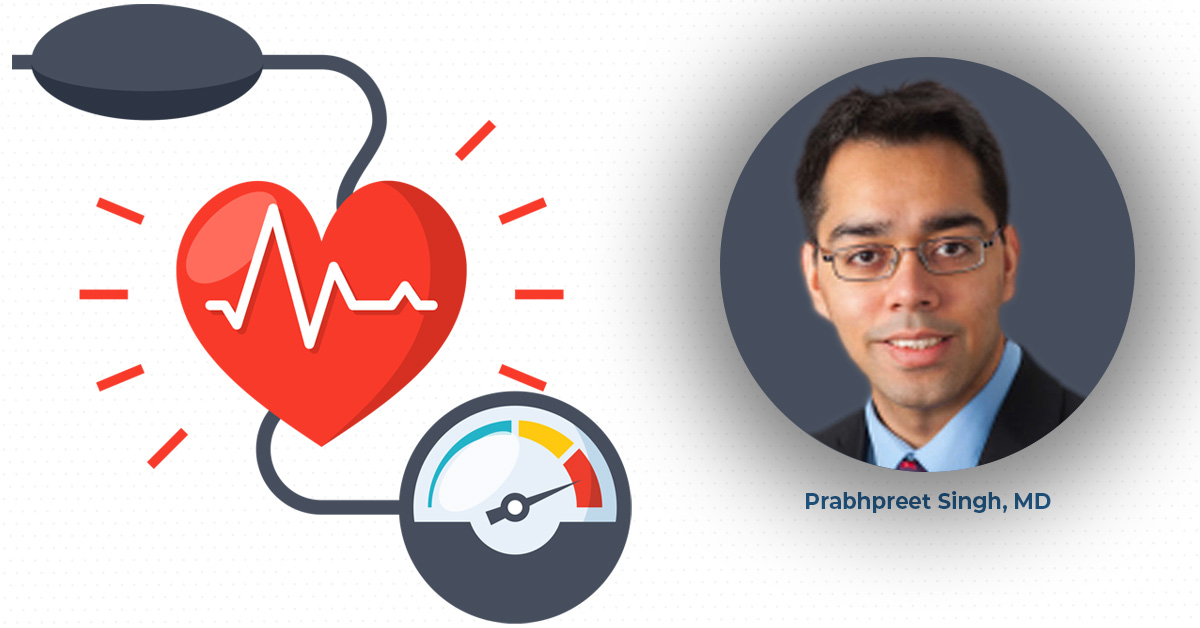
Managing high blood pressure is a low priority for far too many people, an Aurora BayCare Cardiology specialist says.
“It’s alarming,” says Dr. Prabhpreet Singh, a cardiac electrophysiologist with Aurora BayCare Cardiology. “We know that almost half of the adults in the U.S. have high blood pressure. Of particular concern is the fact that only about a quarter of them have their high blood pressure under control.”
That may be because “most people with high blood pressure don’t have any symptoms. Because many people feel fine, they don’t think they need to get their blood pressure checked,” the federal Centers for Disease Control and Prevention says.
Blood pressure – also known as hypertension – is the degree of force of blood pushing against the body’s arterial walls. High blood pressure occurs when the force of a person’s blood flowing through their arteries stays consistently too high.
Know your risk for high blood pressure
Consult a health care provider
It’s important to work with a health care provider to manage high blood pressure, Singh says. Uncontrolled high blood pressure can lead to several conditions, some potentially fatal.
“Uncontrolled high blood pressure is often called the silent killer because it can quietly and adversely affect your heart health in multiple ways. It can cause a heart attack. It can cause rhythm problems,” Singh says. “It can cause a stroke … can affect your other vital organs including your kidneys, your eyesight and may even cause things like blindness and kidney failure, things we don’t really think about.”
High blood pressure is a condition that affects people young and not so young, Singh says.
Nearly a quarter of Americans between the ages of 18 and 39 have high blood pressure, according to data from the National Health Statistics Reports published in 2021. The condition affects more men than women, with Black Americans particularly at risk.
Prevention is key
Fortunately, high blood pressure is treatable and preventable. Here are a few ways to help lower the risk of high blood pressure:
- Lose the extra weight: Discuss with a health care provider the best ways to reach and maintain a healthy weight.
- Exercise: Two hours and thirty minutes of moderate-intensity physical activity per week is all it takes for adults to start maintaining a healthy weight and bringing down that blood pressure.
- Eat a healthier diet: That includes foods rich in potassium, fiber and protein, as well as foods that are low in saturated fat and sodium.
- Don’t smoke: Smoking raises blood pressure. See a health care provider for help with quitting smoking.
- Limit alcohol: This, too, can raise blood pressure. Men should limit themselves to two alcoholic drinks per day. Women should limit themselves to one alcoholic drink per day.
Control high blood pressure
“High blood pressure usually doesn’t give you warning signs so unlike many other conditions, you cannot easily determine that you have it,” Singh says. “Your best bet is to consult with a health care provider. Act today to get your high blood pressure under control and protect yourself against the potential long-term effects of this condition.”